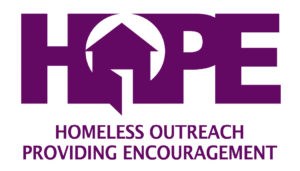The state’s first “safe lots” program is becoming a tight-knit community where residents look out for each other and keep each other safe while they search for a home or apartment.
That is the assessment of Joseph Zanovitch, the architect of the new approach in dealing with homelessness in Longmont.
“It’s already a self-policing lot,” said Zanovitch, executive director of local nonprofit HOPE, or Homeless Outreach Providing Encouragement. “The folks there are already taking ownership of their lots.”
Zanovitch and the HOPE team, using $100,000 in grants, developed the safe lots approach based on similar programs in California and Seattle. Zanovitch expects to formally unveil the Longmont version of safe lots next week.
Since June 15, a Longmont church has reserved eight parking slots as safe spaces for those made homeless because of job loss or other circumstances. They now live in their vehicles and use a community room at the church for showers, meals, and conduct job searches on the facility’s computers.
They also can rest and prepare for their workday if they have jobs.
Zanovitch asked that the church not be named so as not to put program participants at risk.
“Living out your car can be exhausting,” Zanovitch said. “You are constantly worried about your safety or your child’s safety. You can’t sleep and when you get to work you are too tired to do your job.
“Safe lots will give people trying to get back on their feet, a little help and little respite,” he said. “And this is temporary for these people. Believe me, nothing makes me happier than when someone comes up to me and they say, ‘Hey, I’m leaving. I’ve got a place to live.’”
Car owners, especially women with children, prefer to live in their vehicles rather than stay at a shelter, which can be dangerous, he said.
“For women, it is especially difficult. They fear for themselves and for their children,” Zanovitch said. “They just see their car as an extension of the home they lost.”
Safe lot residents underwent background checks and were interviewed before they were allowed a parking slot, Zanovitch said. They and their vehicles also are registered with HOPE and the church.
There is no time limit for how long they can stay. However, they are not allowed visitors and must adhere to a strict code of conduct or they will be asked to leave.
“Believe me, we know exactly who is there and what is going on,” he said.
There is no formal security force but HOPE staff members oversee the lot overnight.
RVs also are not allowed. Only vehicles that can fit into a normal-sized parking space are eligible for safe lots.
Longmont City Councilwoman Polly Christensen applauded the effort to keep the safe lots program low-key and yet effective.
“Every measure is being taken to not do something that will impact the neighbors,” Christensen said. “It’s being done in coordination with the church and it's a good use of its property and a good use of its mission.”



